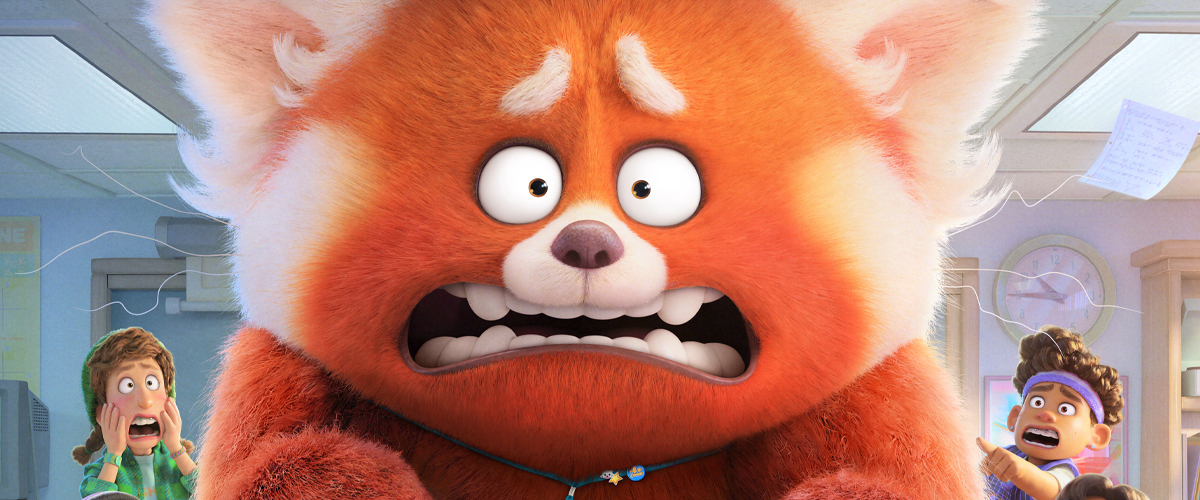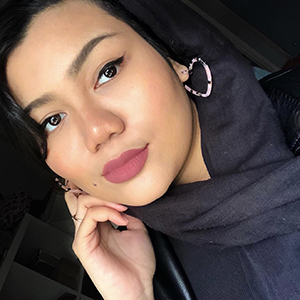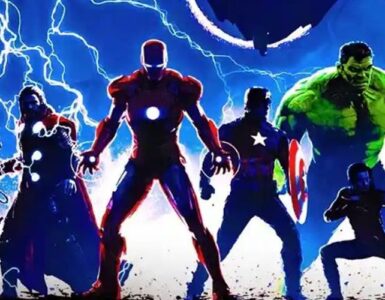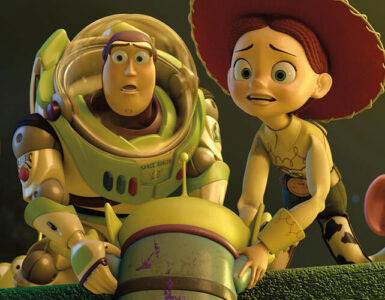You’ve probably seen director Domee Shi’s short film Bao before. The eight-minute short, about a precious little dumpling coming to life, and doted on by his mother, before she violently eats him alive at the very last minute of the film, surprised many.
The beautiful yet heart-wrenching tale about a mother’s love, and a mother dealing with their child growing up and moving on in life, saw Bao win an Oscar for best animated short film in 2019, and put Shi right in the spotlight. All the love and recognition gave the then-animator the opportunity to come up with her directorial debut, Turning Red.
“Back in 2017, as I was promoting my short film Bao, a lot of people kept asking me ‘Why is Bao a boy?’ and I was like, ‘Well because I only had eight minutes to tell the story. For a mother-daughter story, I need an entire feature film,” explained an excited Shi at a press presentation that Geek Culture attended.
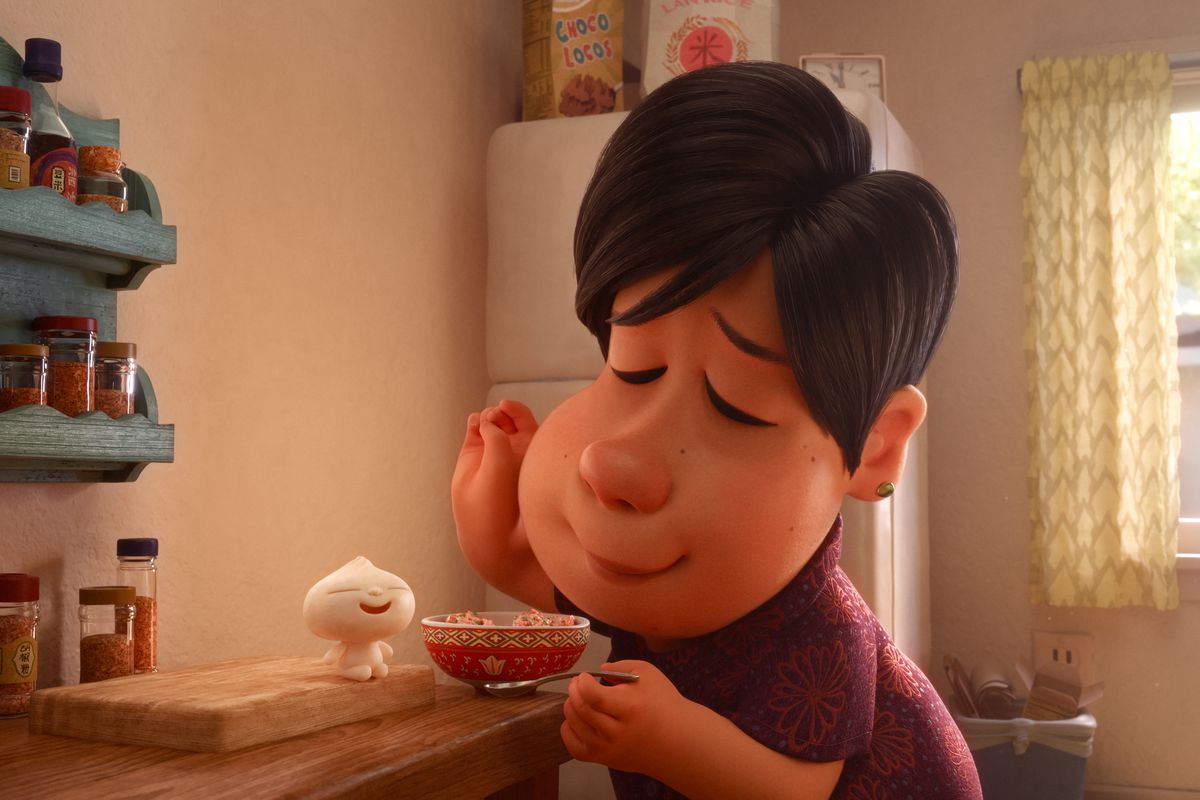
After the success of Bao, Pixar asked Shi to pitch three ideas, all of which were coming of age girl stories. Shi felt like there weren’t a lot of these stories being told in the media, and out of all the three stories she had storyboarded, drew and pitched to Pixar, Turning Red was the most personal story.
“I think that’s why Pete [Docter], and the creative leadership at Pixar ultimately chose it. It was real, it was weird and specific. Turning Red is inspired by my own relationship with my mother,” shared the director.
Turning Red centers around an only child, Mei Lin, who is very close to her mother. She honours her mother and her ancestors, abides by her mother and fulfils her duties as a loyal, faithful daughter. In some way, Mei Li was like Shi in her early tween years.
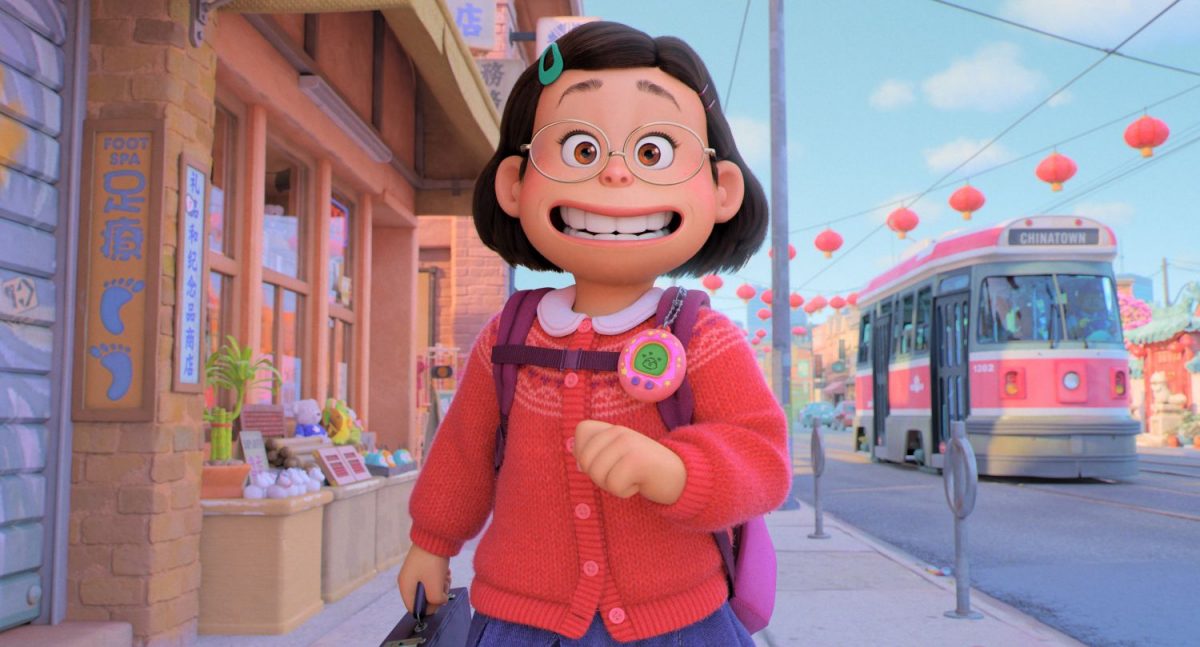
Shi was born in China but immigrated to Toronto, Canada when she was just two. As the only child, Shi has a very close relationship with her parents, especially her mother since her father traveled often for work. Their relationship started to evolve as Shi got older, and she found herself pulled into two different directions.
“We literally did everything together and then as all kids do, I started to grow up. I started changing. I started getting into anime comics and hanging out more and more with my friends and less with my mom. She did not understand why I was obsessed with these fictional characters, and why I drew them over and over again in my sketchbook with their huge eyes and strange, colourful hair,” continued Shi.
“Basically I was being pulled one way, but my duty and my love for my parents is pulling me in another way. Turning Red is inspired by this universal struggle of growing up and figuring out like how to handle that push and pull, like how to handle honouring your parents, but also staying true to yourself.”
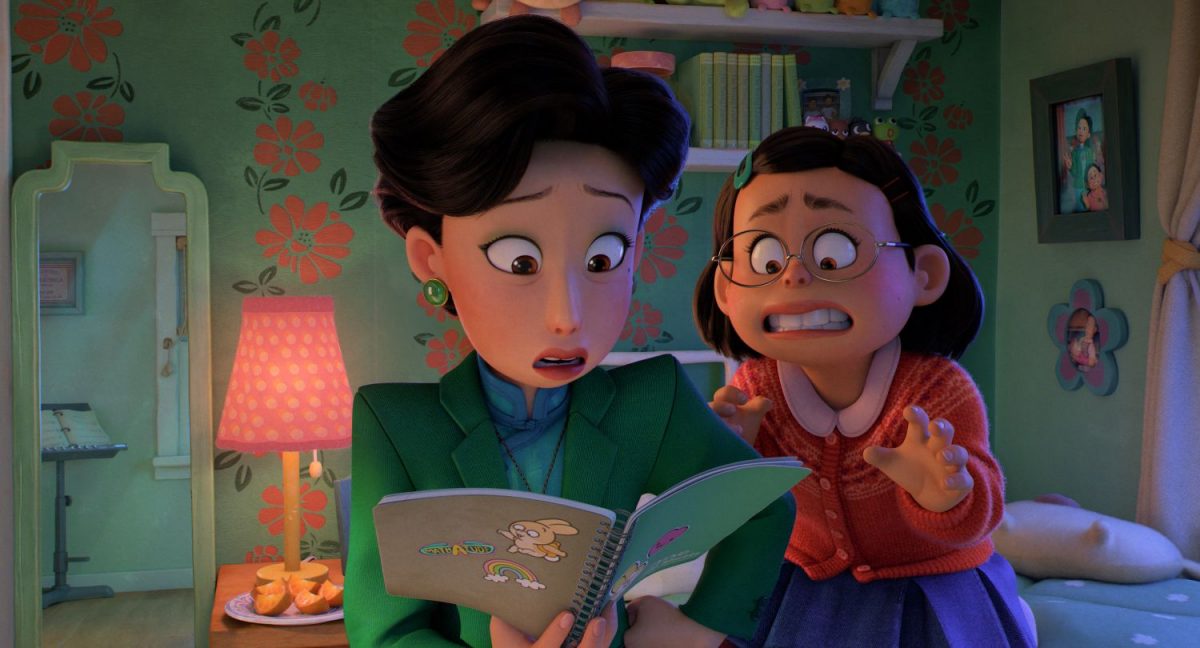
Of course, given how this is a Pixar film, there needed to be some fun and magical aspect to it, and that’s how Shi came up with the idea to turn Mei Lin into a red panda. It’s a cuter, more excitable visual symbol on puberty and growing up.
“The red panda is that magical spark that sets off this internal conflict within herself because up until that point, Mei thinks she has it all figured out like we all did before we suddenly woke up and realized, ‘oh my gosh, we’re covered in hair. We grew like five feet overnight. We smell and our emotions are all over the place and we’re hungry like all the time!”,” smiled Shi.
“We want to use the red panda as an adorable metaphor for the phenomenon of puberty for all the scary, awkward and cringy changes that we go through during this age.”
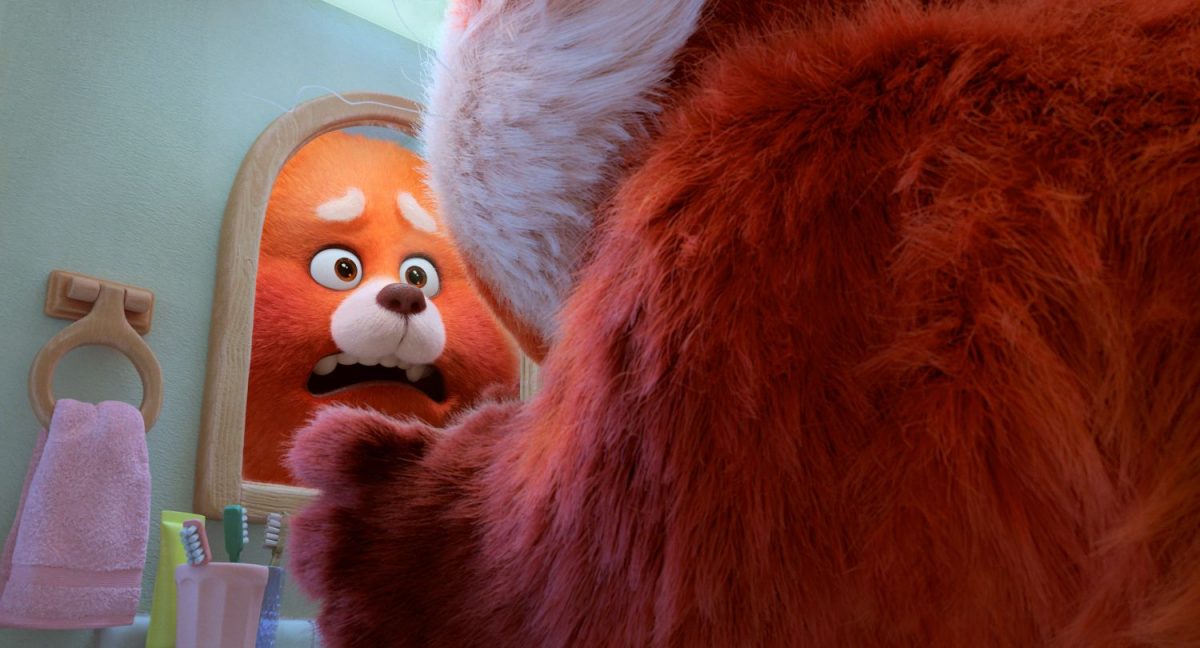
Aside from the giant red panda signifying change and growth, Shi added other personal experiences to make Turning Red the coming of age story that it is. First and foremost, the 33-year-old director took audiences back to the time and place she was experiencing similar experiences as Mei.
“We decided to set it in Toronto, Canada during the early 2000s. It’s not just the area where I grew up, it’s also I feel like the height of teen girl pop mania. It’s like the height of the boy bands of pop music, of idols,” shared Shi. “We just wanted to tell a coming of age story and avoid social media and kind of tell this story in an environment in a simpler time. We have flip phones, CDs, Jelly bracelets, MySpace.”
Although children these days may not resonate with a world without social media – they may not even know what MySpace was to begin with. However, they may relate with the idea of a close-knit friend group, something that is central to Mei’s experience throughout the movie. As an Asian woman living in Toronto too, Shi wanted to celebrate diversity and reflect her own personal friend group onto the screen.
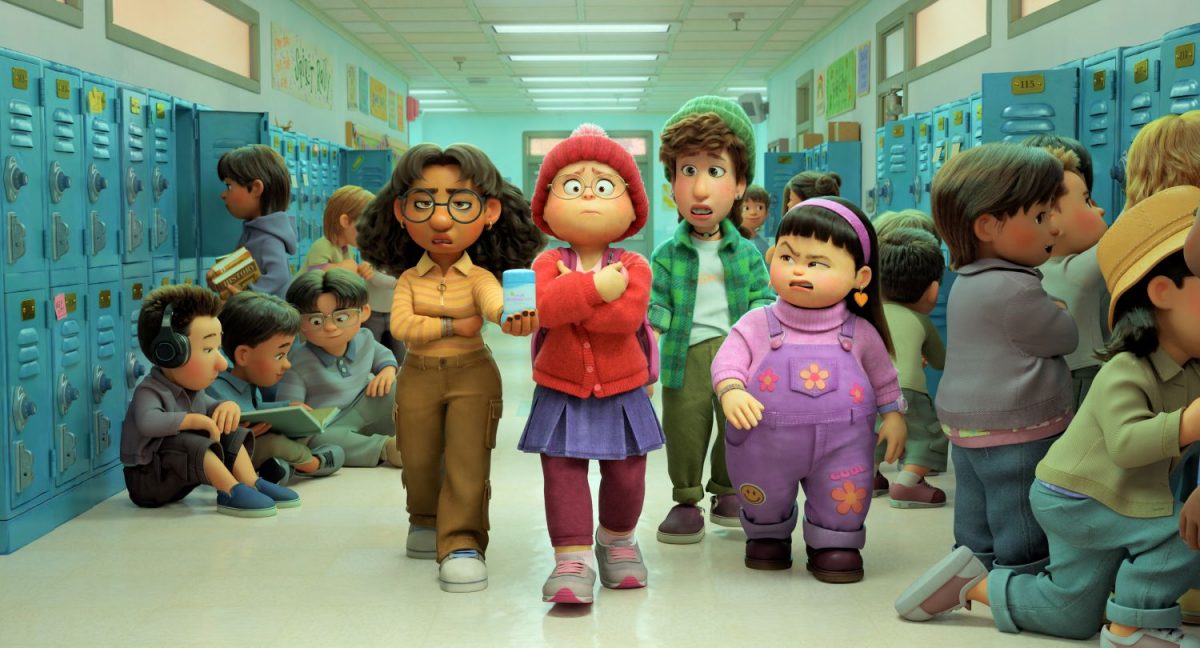
“For Mei’s friends, we wanted them to reflect the diversity that I saw in my friend groups when I was in school. I was lucky enough to grow up surrounded by many immigrant and Asian kids like myself. Maybe because I’m an only child, but I always managed to find a group of girlfriends who became my support system like Mei did with her friends in the movie,” said Shi as she shares old photos of her friend group in her younger days.
“We really wanted them to feel real and kind of reflect me and my friends growing up. Dorky, sweaty, sometimes gross, a little curvy, but ultimately loving and supportive of each other.”
Creating a film based on one’s personal experiences isn’t exactly new in Hollywood. From using art to process grief like Swan Song’s Ben Cleary to using one’s favourite animes growing up to pitch a film like Shang-Chi and the Legend of the Ten Rings’ Destin Daniel Cretton, Shi uses her awkward and uncomfortable experience with puberty and adolescence to provide comfort to other growing girls – something she felt she severely lacked at the time.
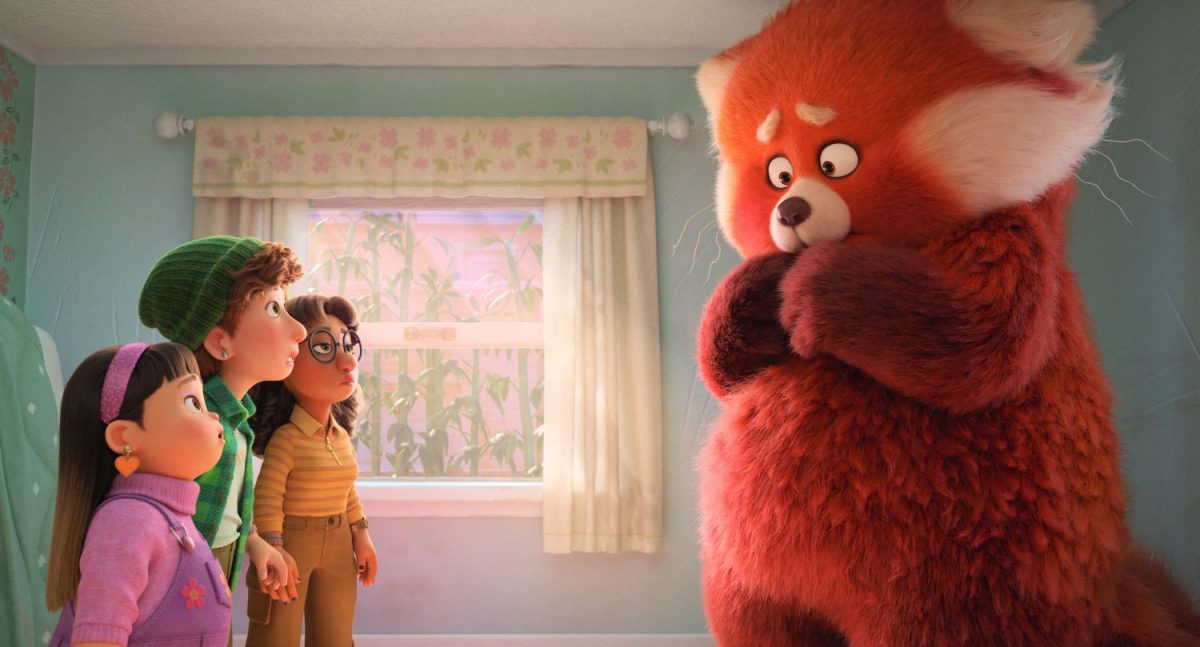
“I just really wanted to make a film that I would have wanted to see when I was Mei’s age, just to help guide me through the tumultuous experience of adolescence and puberty and just tell me that everything’s gonna be okay,” expressed Shi.
“That it’s going to be messy, this time of your life. That it’s going to be awkward. It’s going to be embarrassing and you don’t quite know who you are or how you fit in this world, but that you’re going to make it out alive on the other end, it’s going to be great.”
Turning Red premieres on Disney+ on 11 March 2022.

